



For Emma and Anna
Chapter 29
Chapter 45
Chapter 71
Chapter 97
Chapter 127
Chapter 153
Chapter 183
Chapter 213
Chapter 237
 s I settled down at my desk to write this brief foreword, a light on the computer blinked to indicate that a new e-mail had arrived. This left me with a quandary that by now must afflict most Americans most days of their lives: continue with the train of thought that I'd begun to follow or see who was hailing me and for what purpose. The quandary was easily resolved-I of course clicked on my inbox, finding a message from someone asking if she could call me right now to discuss a piece of climate change legislation making its way through the Senate. I said yes, the phone rang, a half hour disappeared, and now I am back.
s I settled down at my desk to write this brief foreword, a light on the computer blinked to indicate that a new e-mail had arrived. This left me with a quandary that by now must afflict most Americans most days of their lives: continue with the train of thought that I'd begun to follow or see who was hailing me and for what purpose. The quandary was easily resolved-I of course clicked on my inbox, finding a message from someone asking if she could call me right now to discuss a piece of climate change legislation making its way through the Senate. I said yes, the phone rang, a half hour disappeared, and now I am back.
I can't add up with any precision the costs and benefits of that small exchange, repeated constantly. On the one hand, I was able to link up with someone far more easily than I would have even a few years ago. On the other hand, I was unable to keep thinking a thought -any thought-straight through.
Distraction has always been a human condition. Sages have always been quick to point out how even a few minutes of meditation prove the jumpy nature of our consciousness-our monkey minds. But now every force conspires to magnify that inattentiveness: technology has made distraction ubiquitous. We're almost always within reach of something to fill our brains-how often do you sit in the car without turning on the radio? How often do you enter a hotel room without turning on the TV or, now, looking for the Ethernet cable? Places that once offered some respite-the coffee shop, the waiting room-are now among the most connected.
Since this is the water we swim in, it's hard to notice it unless some artificial condition interferes. Some artificial condition like ... nature. The occasional blackout is a nuisance, but also a gift. A long solo backpacking trip is a revelation-for two or three days your internal CNN continues to chatter away, but at a certain point it starts to run out of opinions, plans, screeds, and begins to fall silent a little. It's weird, unsettling.
This book, remarkably impressive both for its wealth of detail and the clarity of its synthesis, forces our attention on that inattention. And in so doing, it asks us implicitly the uncomfortable question about what our lives are for. Are they measured in busyness, the accomplishment of many and random tasks? Or do they require some kind of more artful arc to be whole? Writing powerfully and subversively, Maggie Jackson raises issues that go straight to the core of what it means to be human in the early twenty-first century, questions that we need to think about clearly, slowly, deeply.
The inbox is flashing again, clamoring for my attention. Loving novelty, I head in its direction; craving depth, I do so with a tinge of regret.
-Bill McKibben

 am alone inside a glass booth, enveloped in a swirling storm of dialogue snippets, data shards, and clashing storylines. This is a play, for an audience of one. Within the booth is a tiny cybercafe, with a table, two chairs, a fake daisy in a vase, and a Mac computer. Sit down, press a button, and the play begins-disembodied, prerecorded, unshared. Over a soundtrack of clinking dishes and laughing customers, I hear two hushed voices, talking as if from another table. A man and a woman are meeting secretly, worried that their spouses are having a cyber-affair. The Mac comes to life and unfurls an instant message chat: the virtual whispers of the cyber-lovers. I listen and read, as the two couples simultaneously, online and offline, debate whether cyber-love is real, whether harm has been done. "We haven't cheated, if that's what you're thinking," says one. "Then why do I feel guilty?" his virtual lover retorts. The parallel scripts wash over me, clashing and overlapping, competing for my gaze and for my ear.
am alone inside a glass booth, enveloped in a swirling storm of dialogue snippets, data shards, and clashing storylines. This is a play, for an audience of one. Within the booth is a tiny cybercafe, with a table, two chairs, a fake daisy in a vase, and a Mac computer. Sit down, press a button, and the play begins-disembodied, prerecorded, unshared. Over a soundtrack of clinking dishes and laughing customers, I hear two hushed voices, talking as if from another table. A man and a woman are meeting secretly, worried that their spouses are having a cyber-affair. The Mac comes to life and unfurls an instant message chat: the virtual whispers of the cyber-lovers. I listen and read, as the two couples simultaneously, online and offline, debate whether cyber-love is real, whether harm has been done. "We haven't cheated, if that's what you're thinking," says one. "Then why do I feel guilty?" his virtual lover retorts. The parallel scripts wash over me, clashing and overlapping, competing for my gaze and for my ear.
I listen twice and then try the next booth, and the next. There are six in all, a half dozen playlets, each no more than twelve minutes long, told by and through computers. These are the Technology Plays-six faceless, mechanized dramas of passion, mistrust, and dehumanization, unfolding at the touch of a button. i This smorgasbord of experimental theater is on display in the soaring atrium of a college library in upstate New York. Just before the plays are dismantled, I have driven three hours to see them. Here on this dreary campus on a raw November day, I am looking for clues to understanding our own increasingly multilayered, mutable, and virtual world. Are these six mini-plays absurd slices of science fiction or reflections of our own lives of snippets and sound bites? Are they meaningless theatrical peep shows or dramatizations of the real shadows creeping over our lives?
Enter Booth 2, Richard Dresser's Greetings from the Home Office. Now I am sitting at an office desk, cast as the new hire in a corporate office that's roiled by a possible accounting scandal. A telephone rings. A frantic woman colleague is calling to say that the boss is covering up his misdoings. The smooth-talking boss telephones next to say that the whistleblower should be ignored; she is his bitter ex-lover. "I'm saying this for your own good," the boss purrs. Rapid-fire calls are punctuated by the interjections of a meddling secretary on an intercom. Ultimately, I'm forced to decide whom to trust, based on incomplete information and faceless relations. It's the age-old game of office politics done blindfolded, execution-style. In another play, Chip, a seemingly banal ATM transaction goes wrong when the machine rejects the identity chip allegedly implanted in my finger. The machine and a bank representative on the telephone shout contradictory commands as I hear machine-gun-firing security guards close in. The experience is at once comic and frightening. When the machine orders me not to turn around, I can't help but give a terrified peek over my shoulder. The Technology Plays are equal parts video game, amusement park ride, and high-tech storytelling. Oh-so briefly, you are sent hurtling into fantastical worlds where you are asked to fix what you can't see, decide what you don't understand, relate to those you cannot fully trust. The narratives are fragmented. The experience is disorienting. This is not how we live. Or is it?

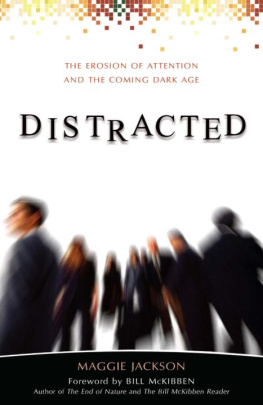
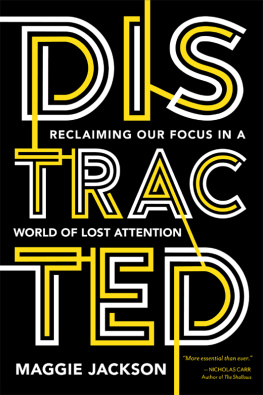

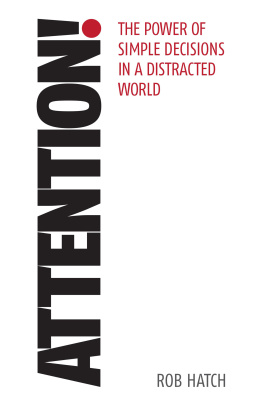
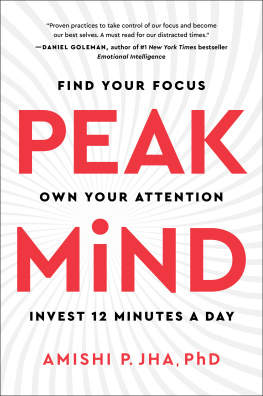
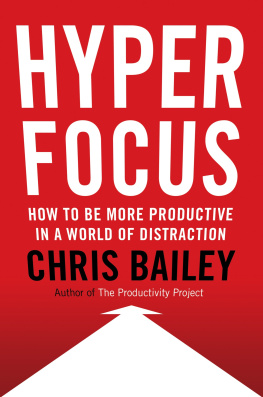
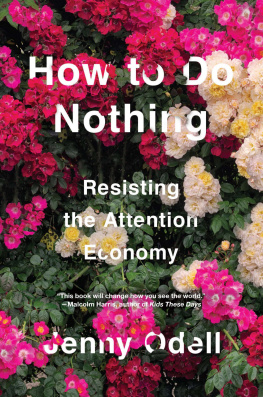
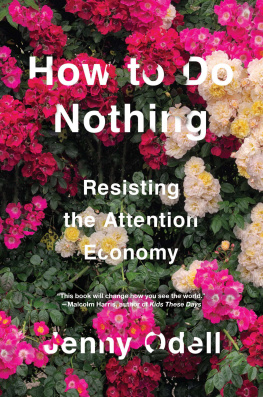
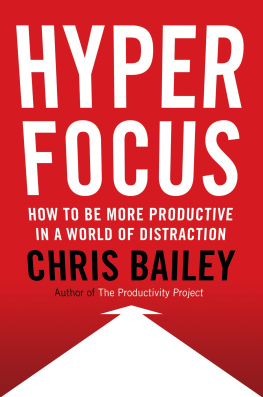


 s I settled down at my desk to write this brief foreword, a light on the computer blinked to indicate that a new e-mail had arrived. This left me with a quandary that by now must afflict most Americans most days of their lives: continue with the train of thought that I'd begun to follow or see who was hailing me and for what purpose. The quandary was easily resolved-I of course clicked on my inbox, finding a message from someone asking if she could call me right now to discuss a piece of climate change legislation making its way through the Senate. I said yes, the phone rang, a half hour disappeared, and now I am back.
s I settled down at my desk to write this brief foreword, a light on the computer blinked to indicate that a new e-mail had arrived. This left me with a quandary that by now must afflict most Americans most days of their lives: continue with the train of thought that I'd begun to follow or see who was hailing me and for what purpose. The quandary was easily resolved-I of course clicked on my inbox, finding a message from someone asking if she could call me right now to discuss a piece of climate change legislation making its way through the Senate. I said yes, the phone rang, a half hour disappeared, and now I am back. am alone inside a glass booth, enveloped in a swirling storm of dialogue snippets, data shards, and clashing storylines. This is a play, for an audience of one. Within the booth is a tiny cybercafe, with a table, two chairs, a fake daisy in a vase, and a Mac computer. Sit down, press a button, and the play begins-disembodied, prerecorded, unshared. Over a soundtrack of clinking dishes and laughing customers, I hear two hushed voices, talking as if from another table. A man and a woman are meeting secretly, worried that their spouses are having a cyber-affair. The Mac comes to life and unfurls an instant message chat: the virtual whispers of the cyber-lovers. I listen and read, as the two couples simultaneously, online and offline, debate whether cyber-love is real, whether harm has been done. "We haven't cheated, if that's what you're thinking," says one. "Then why do I feel guilty?" his virtual lover retorts. The parallel scripts wash over me, clashing and overlapping, competing for my gaze and for my ear.
am alone inside a glass booth, enveloped in a swirling storm of dialogue snippets, data shards, and clashing storylines. This is a play, for an audience of one. Within the booth is a tiny cybercafe, with a table, two chairs, a fake daisy in a vase, and a Mac computer. Sit down, press a button, and the play begins-disembodied, prerecorded, unshared. Over a soundtrack of clinking dishes and laughing customers, I hear two hushed voices, talking as if from another table. A man and a woman are meeting secretly, worried that their spouses are having a cyber-affair. The Mac comes to life and unfurls an instant message chat: the virtual whispers of the cyber-lovers. I listen and read, as the two couples simultaneously, online and offline, debate whether cyber-love is real, whether harm has been done. "We haven't cheated, if that's what you're thinking," says one. "Then why do I feel guilty?" his virtual lover retorts. The parallel scripts wash over me, clashing and overlapping, competing for my gaze and for my ear.